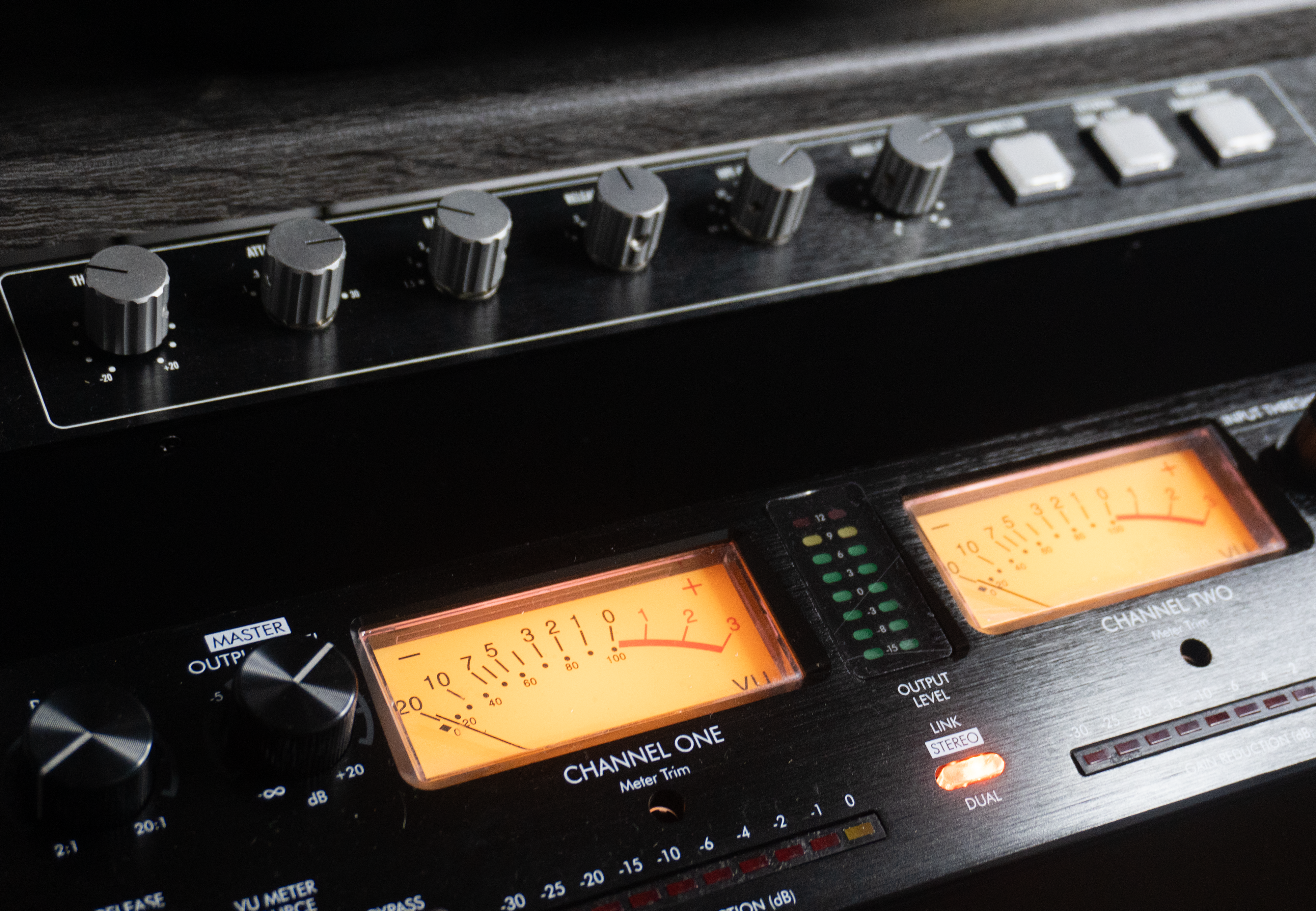What Is Mastering — And Why You Shouldn’t Skip It
The Final Touch Your Music Deserves
If you’re making music and putting serious effort into mixing your tracks, mastering is that final touch that takes everything to the next level. Yet, for many beginners, it’s a misunderstood — or completely unknown — part of the process.
At New Gen Audio, we believe mastering is essential for anyone who wants their music to sound professional, polished, and playback-ready on any device.
So, what exactly is mastering?
Mastering: A Simple Definition
Mastering is the final step in the audio production process. It’s where your finished mix gets optimized for clarity, loudness, balance, and playback across all systems — whether that’s a phone speaker, studio monitors, a car stereo, or earbuds.
Think of mastering like the “polish” on a finished product. You’ve built the structure (recording), decorated it (mixing), and now you’re adding the shine and consistency that ensures it looks (and sounds) perfect no matter where it’s viewed (or heard).
Why It Matters: Translation & Loudness
One of the biggest reasons to master your tracks is translation. Every playback system is different — some boost bass, others crush the mids, and some make your mix sound like it’s under a blanket.
Mastering ensures that your mix sounds balanced and impactful across a wide range of playback devices. This is crucial whether you’re playing your music for yourself, sending it to friends, or releasing it on streaming platforms.
Another reason is loudness. Mastering gives your track competitive volume without sacrificing quality — a key element in today’s music landscape, where tracks are constantly fighting to be heard.
What Does Mastering Actually Do?
While it might sound subtle, a properly mastered track will almost always sound more:
- Lively/fuller
- Balanced
- Consistent
- Louder
Here are some of the changes mastering can bring:
- Controlled low end (especially excessive bass)
- Slightly brighter and clearer highs
- Enhanced loudness and perceived quality
- Improved tonal balance
- Added harmonic richness
- Proper stereo image and mono-compatibility
- Compliance with streaming platform requirements
🎧 Example: An unmastered track may sound dull, flat, or even muddy. Once mastered, that same track can feel punchy, wide, and ready for release.
Mastering for Streaming Platforms
Most people don’t realize that Spotify, Apple Music, and other streaming services have strict audio requirements. If your song doesn’t meet those specs, they’ll automatically adjust it — and that often means downgraded sound quality.
For example, Spotify recommends:
- 16-bit / 44.1 kHz WAV or FLAC
- Mastered at -14 LUFS
- With a true peak of -1 dB
If your file is too loud, too soft, or poorly formatted, Spotify will compress and process it to fit their system — usually not in your favor.
This is why mastering isn’t optional if you care about how your music is heard.
Can’t I Just Mix It Louder?
While you can make your mix louder during the mixing phase, mastering gives you control over loudness without sacrificing dynamics. It also helps “glue” your track together and gives it that final professional edge.
Mastering also adds character — whether it’s subtle harmonic enhancement or a refined stereo image — that’s difficult to replicate in mixing alone.
Is Mastering Worth the Investment?
Absolutely.
While some artists skip mastering due to cost or lack of knowledge, it’s one of the best investments you can make in your music. It increases your song’s chances of standing out, getting playlisted, or simply sounding great on every platform and device. It usually also embeds metadata to your file, such as song name, artist, date, artwork, etc..
And here’s the good news — mastering doesn’t have to break the bank.
Let New Gen Audio Master Your Sound
At New Gen Audio, we offer modern, affordable mastering services designed to give your tracks the finish they deserve. Whether you’re releasing your first single or building your next EP, we make sure your music translates perfectly and sounds competitive.
We also provide online courses for those who want to learn the craft themselves — beginner-friendly and designed for today’s producers and artists.
🔗 Stay tuned — we have just launched and are offering 20% off in all our services & products until 1/01/2026!

Enjoy
20% Off
Final Thoughts
Mastering isn’t just about loudness — it’s about clarity, consistency, and connection. It’s the last, crucial step in making sure your music hits just as hard in someone else’s ears as it does in yours.
So don’t skip it. Your music deserves it.
Want more mixing and mastering tips?
Subscribe to our youtube channel or follow our blog for regular content that helps you level up your sound.
Have questions? Drop a comment or get in touch — we’re here to help.



No responses yet